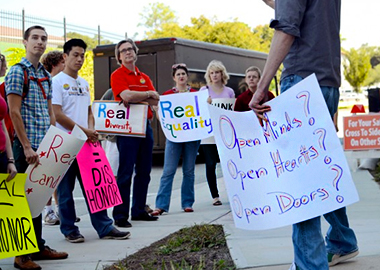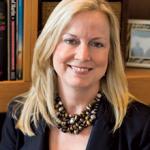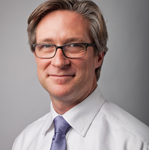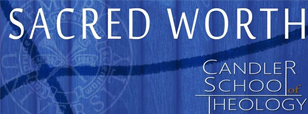 Emory’s Candler School of Theology recently bestowed a Distinguished Alumni Award on Reverend Eddie Fox.
Emory’s Candler School of Theology recently bestowed a Distinguished Alumni Award on Reverend Eddie Fox.
In response to this decision, the Interfaith Health Program chooses to stand in solidarity with lesbian, gay, bisexual, and transgender students (LGBT) and allies at Candler just as we do with our LGBT partners and friends and their allies who are part of diverse religious traditions in the United States and around the world.
We are eager to be part of ongoing efforts to build a community at Emory characterized by inclusion, access, and equity for all people.[divider top=”no”]
 Dear Colleagues,
Dear Colleagues,
I write today as the Director of the Interfaith Health Program and the Joseph W. Blount Center for Health and Human Rights at Emory University. Our programs examine religion as a social force that impacts the health of individuals and communities around the world.
We recognize that religion can contribute to health and wholeness or to stigma, suffering, and violence. We work collaboratively with religious leaders and lay people of faith from various religious traditions to further the positive contributions of health and wholeness. We also endeavor to stand in solidarity with those who experience stigma, discrimination, suffering, and violence in the name of God, striving to add our voices to their witness in a prophetic call to challenge such structural sins. It is in this spirit that I express our deep concern and disappointment with the decision made by the Candler School of Theology to bestow a Distinguished Alumni Award on Reverend Eddie Fox in light of his ongoing public advocacy against the full inclusion of lesbian, gay, bisexual, and transgender (LGBT) Christians in the United Methodist Church.
Research universities are unique institutions because they bring together tremendous intellectual resources from a variety of disciplines to address complex challenges. As such a university, Emory has developed a well-earned reputation for strong interdisciplinary work that bridges the health sciences, social sciences, humanities, and creative arts. Our own program is an example: we benefit from collaboration with colleagues from the health sciences, the social sciences, and theological studies. Such collaboration is one of the ways that we can recognize the limits of any system of knowledge and thereby spot our own biases, helping us to recognize the deep error in our thinking that those before us had accepted as evident truth. Like its peers, Emory has come to recognize that homophobia (like sexism and racism in the past) is out of step with the best ideals of the university and society. It is not merely one choice among others that we should engage in a spirit of inclusion, because it starts with the premise that LGBT people inherently do not deserve the rights that others enjoy. I am deeply dismayed, therefore, that Candler has chosen to single out an alumnus for recognition as an exemplar of Emory community values who has publicly articulated homophobic positions.
Granted, Reverend Fox may well have made extraordinary contributions to Emory and the United Methodist Church. I recognize that our colleagues at Candler must navigate difficult tensions in their relationship to the Church and its teaching which prohibits its clergy from presiding in the marriage of LGBT Christians, and denies ordination to “self-avowed practicing homosexuals.” However, Emory states that it “is dedicated to providing equal opportunities to all individuals regardless of race, color, religion, ethnic or national origin, gender, age, disability, sexual orientation, gender identity, gender expression, veteran’s status, or any factor that is a prohibited consideration under applicable law. Emory University is a welcoming, diverse, and inclusive campus.” It appears to me that these two positions stand in inevitable tension, leading to events in which our esteemed colleagues at Candler and others of us who are deeply committed to our faith and the principles of social justice, must make a decision in the public square as to the side of this tension on which we will stand. The Interfaith Health Program and our partners choose to stand squarely on the side of LGBT people in the university, the church, and in the broader society.
Finally, as a person of faith who works both in the university and in community-based programs in partnership with faith-based organizations in various parts of the world, I want to challenge Reverend Fox’s claim that the church in the United States must exclude LGBT Christians in order to maintain unity with the global church. Those of us who are progressive Christians can simultaneously stand in solidarity with LGBT sisters and brothers and with Christians and other people of faith, many of whom hold more conservative views, from all parts of the world. In our work together, our program staff and our community partners do so every day.
Again, I believe that Emory is fortunate to have forged strong interdisciplinary programs that allow us to listen to and learn from one another. My colleagues and I in the Interfaith Health Program and the Joseph W. Blount Center for Health and Human Rights are happy to join in conversations of discernment with our Candler colleagues and others in the university on these issues. We continue to offer our support to the LGBT students and their allies at Candler and across the university who feel marginalized by any of the academic or religious communities of which they are a part. We do so because we believe in the ideals of Emory and in the good news of our faith.
Sincerely, Sandra L. Thurman, Director Interfaith Health Program Blount Center for Health and Human Rights Emory University Rollins School of Public Health

Bruce Garner is an alumnus of Emory College (Class of 1971) and an active lay member in the Episcopal Church. He is the Head Verger at All Saints’ Episcopal Church in Atlanta, GA and has served as a Eucharistic Minister at All Saints’ since 1981. Bruce has been a parish delegate to Diocesan conventions every year since 2000 and has been a Deputy or Alternate Deputy to seven General Conventions of the Episcopal Church. From 2006-2012, he served as a member of the Executive Council of the Episcopal Church. Bruce has played a role in the national leadership of Integrity, the national network of Episcopalians offering support to LGBT Christians, for over two decades and served as National President from 1990-1996. In addition, he has worked with the National Episcopal AIDS Coalition since 1989.
What Would Jesus Really Do?
The phrase/question: “What would Jesus do?” has been bouncing around for several years. I suspect the most common response differs from what the Jesus of the Gospels would actually do. We don’t have to ask what Jesus would do, we are told what He did. More importantly, we know what he did NOT do. Jesus did not suck up to the religious authorities and establishment of his day. He cut them no slack for their hypocrisy.
I sometimes look at the actions of some of our religious “establishment types” such as seminary deans and wonder how closely they read the Gospel accounts of Jesus’ ministry. They neither challenge injustice and oppression, nor do they speak prophetically to the question “what would Jesus do?,” seemingly preferring to be as milquetoast and “safe” as possible. Some even uphold those who would continue to practice injustice and oppression in the name of Jesus as models for others. I really am forced to wonder how much attention gets paid to what Jesus actually did do. Didn’t any of them actually read the parts that led to the trial and crucifixion? What Jesus did is what eventually got him nailed to that cross.
As I write this, it is the middle of Advent. We are preparing to observe the celebration of God’s incredibly radical act of love in becoming incarnate . . . taking on human flesh . . . becoming one with humankind. We are hearing the words of John the Baptizer rooting out the broods of vipers, the hypocrites — advising pointedly to flee from the wrath to come. John is blunt, to the point, no doubt about it.
On the Tuesday of the Second Week of Advent, the assigned Gospel reading comes from Matthew and includes Jesus’ encounter with the Pharisees and their attempt to trick Him with the question about which is the greatest commandment. Only a few verses earlier we have witnessed Jesus’ slamming of the Sadducees for their hypocritical question about whose wife a woman would be in the resurrection after having been left a widow by seven brothers who had passed her down like a piece of property upon the death of each. If the Sadducees believed in the resurrection, their question might have been plausible. Instead it was just another trick by the religious establishment of the day to trap Jesus on his theological stance on an issue.
So what did Jesus do? Jesus quickly responds to the question about which commandment was the greatest with very familiar words: “Hear O Israel, you shall love the lord your God with all your heart and soul and mind (some include “and strength”). This is the first and Great Commandment. The second is like unto it: “You shall love your neighbor as yourself. On these two commandments hang all the law and the prophets.” I doubt this is what the Pharisees really wanted to hear. They were still trying to play theological “gotcha” with Jesus. They apparently got the message, though, since we are then told that they didn’t ask Him much else!
It’s easy for us to “get” the first commandment — loving God with all that we are — that is relatively easy for us. We do less well with the second commandment, the one of equal importance. We are, as I suspect the Pharisees were, looking for an exception or an exclusion or an out as to who our neighbor is that we must love. Despite reading over this and similar passages many times, I cannot find any exceptions to the neighbor we must love as ourselves, the neighbor we must love on the level that we love God. The absence of any named exceptions hasn’t prevented us from trying to find exceptions from the time the first words were uttered.
Even in as short a time span as my own life, I have seen us try to exclude someone from the category of neighbor based on race, gender, economic status, differing ability, different economic status or educational level, or pretty much any other category we can conjure up — including being left handed! And of course, we look for an exclusion of those neighbors whose sexual orientation or gender identity differs from our own and/or the majority.
I find it extraordinarily odd that these various exclusions have roots in our seminaries and schools for theological education. Again, it makes me wonder if we have actually paid close attention to the narratives we have about Jesus in the four Gospels. Invariably, when we hear about Jesus’ encounters with those around him, “top billing” goes to those on the margins, those who are the outcasts of both society and the religious establishment, those most would avoid if given an opportunity, those with diseases and infirmities. To use some of our current vernacular language: OMG, Jesus even included women! And God truly only knows who else made the cut that we never heard mentioned anywhere.
We have made some degree of progress, albeit agonizingly slow progress, in taking away the exceptions and exclusions we try to find for God’s love and Jesus’ redemption. We probably have made the most progress with not excluding the infirm and diseased — although HIV/AIDS set us back a ways on that progress — and still does for many. It may be a toss-up as to the progress we have made on race and gender issues. A lot of that depends on which seminary is doing the education and where they are located. Still, women and people of color are more and more included rather than excluded.
The least amount of progress on ending exclusions from the community of the faithful shows up in the issues of gender identity and, of course, sexual orientation. Perhaps we can cut ourselves some slack with gender identity since we are just beginning to understand the tremendous complexities of what gender really means. I’m not saying we can justify it, but there is the idea that it is a fairly new topic for us. On the other hand, if we are more inclusive than ever of women, the issue of gender identity should at least be able to ride on the coat tails of that progress.
We still balk the most when it comes to exercising the radically inclusive ministry of Jesus toward those of a minority sexual orientation, i.e., those who are lesbian or gay or bisexual or transgender (LGBT). Yet I do not find any place in the four Gospel narratives where Jesus mentions anything we can clearly identify as an exclusion due to sexual orientation. Jesus practices a broad and diverse ministry from almost any viewpoint one might want to use. So why would we think that Jesus would have excluded LGBT folks from His ministry — even if there had been a terminology that was descriptive of them in His era? I can’t see a reason for that exclusion or any other except for OUR own insecurities about who should be part of the household of faith. We generally have to be comfortable with who we are in order to be comfortable with who others are. Perhaps that is asking too much?? I’m not convinced.
I still track the history of exclusions back to our seminaries and theological educational institutions. They teach, they educate, they train those who are to minister to us. Whatever biases and prejudices those institutions have will be passed along to students who will in turn pass them along to those who will eventually become members of their congregations/parishes. It all starts with the Dean or the President, gets transmitted through the faculty to the students, who then pass it on to those who fall under their ministerial responsibility. Progress only takes place when that chain is interrupted or broken entirely.
As a white male, I have some empathy, not a whole lot, but some empathy, for my peers’ shortcomings when it comes to those who don’t appear to look and act just like us. We are indeed a fragile group whose securities are most reinforced by those of like mind, color, gender, and sexual orientation. Yet I have to wonder about females who find themselves in roles and positions that were traditionally reserved for men only. What about the female dean of a school of theology — a position unheard of not many years ago — a position where women are still deliberately excluded in some places. Do they not comprehend that for them to continue to exclude or support the exclusion of others who are different is nothing short of hypocrisy? Do they not grasp the concept that they who were once excluded should no longer support exclusion — for any of these superficial reasons we dredge up?
What might that say about their own self-image if they feel the need to continue to practice the discrimination perpetrated on them? What might that say about their needs if they allow others who practice such discrimination to be honored or “held up” in any way? How are they able to justify honoring the work of someone when that work includes a significant amount of discrimination and exclusion of others, particularly the marginalized and disenfranchised? Would they single out and honor someone who had systematically excluded women or people of color? I’m thinking not so much. Yet there seems to be no problem with bestowing an honor on someone who has and seems to continue to find ways of excluding others based on sexual orientation and/or gender identity and expression. The glaring disconnect between such attitudes and subsequent actions seems to beg the question: What would Jesus really do? The Jesus of the Gospels would favor the outcast over the modern day Pharisee. Why is it so difficult for us to grasp the fact that we do not get to choose who is part of the household of faith? That is the work of God and God alone. Our job is just to gather folks into that household of faith, not sort them.
We all need to stand in front of a mirror from time to time and ask if we are reflecting what God wants us to see as mature creatures of faith. Do we reflect back an image supportive of the radical ministry practiced by Jesus among every possible undesirable of his day? Or do we reflect back an image supportive of the Pharisaic ministries that Jesus continually judged as lacking? What does the mirror reflect? Reflection and anticipation are at the heart of Advent. Anticipation should always be in the heart of all who follow Jesus Christ as Lord and Savior. Reflection should keep us grounded. O Come O Come Emmanuel, ransom us all, from hardness of heart and stiffness of mind.
Bruce Garner Emory University, College Class of ‘71
 Dear God,
Dear God,
We thank you for loving us. For loving us through the faithful witness of your church and her long tradition of standing in solidarity with those who have known rejection.
For loving us through people and institutions outside the church who have often given human face and form to your love when the those in the church have been most vocal in their outright hatred or have acquiesced to silent complicity when intolerance reveals itself because they fear institutional reprisals. Most of all, we offer our deep thanks that you love us and continue to draw us closer to you, surprising us at every turn at the ways in which your Spirit shows up.
We trust that you are a God of justice. A God who displays both mercy and anger as you love and bring your children into fuller relationship with you. We come asking that you channel our anger through your justice and love. May you lead us in using the power of that anger to stand firm in a vision of justice while remaining open to reconciliation with those who have sought to deny us a place at Your table.
At the same time, dear God, we confess that we have too often settled for easy expressions of toleration rather than committing ourselves to the hard work of true reconciliation. Give us the courage to step out in public witness in ways that lay the framework for that reconciliation.
Give your queer children the courage to name structural sins of exclusion and to stand up against those sins by calling them out for what they are.
Give our allies the courage to move beyond private affirmations of support that too often turn into awkward silence when queer lives become subject of debate in the public square.
We pray for those inside of Candler and your broader church who choose not to be in this circle today, dear God. May your Spirit reach them through other ways and relationships, as you reconcile us to one another and to you. Keep us open to the ways in which we might be instruments of that reconciliation.
We pray especially for those inside of Candler and your broader church who desire deeply to be in this circle today, but who are locked in fear. Fear that who they are is not truly loved by you because they have heard this lie repeated so often in their churches.
Fear that institutional officials—bishops, district superintendents, pastors, mentors, professors, or administrators—are watching and will punish them for their participation. Pour your Spirit on them that they may know your perfect love which casts out fear.
Convict us all with your love for our failure to stand up and be heard when any of your children suffer. We confess that have all failed in that regard at times because of fear or contempt or ignorance or pride. Help us as we commit ourselves to be part of ongoing efforts to build a world rooted in justice.
We pray for Eddie Fox. We give thanks for the ways in which your Good News has been spread through his imperfect efforts and through ours. Make us all instruments for living out better expressions of Your good news in our common lives so that our best efforts and his may find common purpose. We acknowledge at the same time, dear God, that we deeply disagree with his intentional actions to keep LGBT people from being fully part of your Church. Help us to find ways to relate to him and others who hold similar views to him. In all honesty, dear God, we don’t really know what that looks like. We don’t have very good models for it. So we ask that you help us in our efforts as we seek to respond both in truth and in love.
Bless this gathering, dear God, and renew us for your ongoing work of justice and reconciliation. We know that this rally is not the end; it is the beginning. Guide us in the next steps. Guide us always, we pray.
Amen
 On September 27, 2013, the Candler School of Theology at Emory University bestowed Distinguished Alumni Awards on three of its graduates. The decision to give this award to one of those alumni—the Reverend H. Eddie Fox—elicited protest. On the day that the awards were given, that protest took the form of a march outside the awards ceremony. I was part of that march.
On September 27, 2013, the Candler School of Theology at Emory University bestowed Distinguished Alumni Awards on three of its graduates. The decision to give this award to one of those alumni—the Reverend H. Eddie Fox—elicited protest. On the day that the awards were given, that protest took the form of a march outside the awards ceremony. I was part of that march.
We gathered in protest because Eddie Fox has been a forceful voice admonishing the United Methodist Church to maintain its current positions on homosexuality—that “homosexuality is incompatible with Christian teaching.” The UMC position denies non-celibate LGBT people ordination, refuses to bless their loving relationships, and forbids its clergy to officiate at same-sex weddings.
Oh yes, it also affirms that “homosexuals are people of sacred worth.” Yeah, right. Love the sinner and hate the sin. For those of us who have put up with these kinds of self-righteous proclamations by Christian bodies, we recognize that loving the sinner and hating the sin is a lie; those who utter it are delighted that the “sin” is in evidence so that they might once again punish “the sinners.”
In ecclesial and academic environments such as these, the decision to protest is an act of faith.
We marched last week because Candler failed to keep its word. It had named itself as a place where LGBT people were welcomed on their own terms and not the terms of any one denomination. In honoring Eddie Fox, Candler revealed that it was not such a place. Our place as LGBT people was open to debate, a topic of conversation.
Dean Jan Love said this explicitly :
Those marching outside are helping to deepen this conversation at Candler. I hope you will welcome them, greet them, and have conversation with them as you leave Candler. We are delighted that the Emory University campus is a place where students can express themselves freely and where we invite each other to listen deeply to each other. Candler is proud to be a place where we encounter deeply held differences across the Christian family and seek to find the light of Christ in each other in these often tough and tender conversations. And so we welcome all of you as we welcome all of those outside. And we look forward to the intermingling of the two groups.
That is a lovely sentiment. It invites us to conversation, lots of conversation. Deep conversation. Tough and tender conversation. Conversation ad nauseum.
Those of us marching outside the ceremony are sick of conversation. We’ve been having this conversation for decades. And yet, we’ll keep having it. We’ll keep having conversations because as tired as that word is, it refers to the practice of discernment—part of the hard work of Christian community.
But the issue here is not about discernment—it concerns the non-discrimination policy of a university
Dean Love failed to acknowledge these distinctions. Those of us who marched did so because Candler decided to privilege one side of this debate when it chose to honor Eddie Fox. And what about school policy? Emory University states that it will not tolerate anything that “has the purpose or effect of creating an intimidating, hostile, or offensive employment, educational, or living environment” and “has the purpose or effect of unreasonably interfering with an individual’s work performance or a student’s academic performance.”
As someone who has been part of Candler both as a student and as a professor, I know firsthand that the UMC position has exactly this kind of effect. It creates an environment where LGBT seminarians hide because they fear that district superintendents and bishops are policing their moves. It creates an environment in which professors who disagree with denominational polity perform same-sex unions in private homes but remain silent in public venues. It creates an environment in which LGBT faculty or senior staff are welcomed if they agree to abide by the unwritten rules of the glass closet: feel free to speak about LGBT inclusion as a matter of justice but don’t self-identify or risk losing your position. It creates an environment in which other faculty and staff offer private affirmations behind closed doors but keep their distance when conflict arises.
In honoring Eddie Fox, Candler’s leadership gave formal institutional assent to exactly such an environment, and in doing so they reinforce an infuriatingly condescending position: they are happy to welcome LGBT people as long as we play by their unwritten rules.
The feminist theologian Mary McClintock Fulkerson sums up the smugness of this position quite well: “The liberal impulse to include everyone is precisely the “generous” impulse that appears to open the doors wide, while it continues to set the terms on which one is allowed in…”
Dean Love invited those at the ceremony that honored Eddie Fox to welcome and greet those of us who were protesting. I speak as one of those protestors in saying that expressions of welcome and greeting are nice. But “niceness” can be toxic when it is used to distract from injustice.
It’s time for Candler to quit assuming that tepid expressions of toleration are courageous and to decide if it is willing and able to accept LGBT folk without reservation so that our voices might actually be heard in these seemingly endless conversations that are part of the Church today. It’s time for Emory University to clarify the tension between its own non-discrimination policy and that of the United Methodist Church.
And when Candler decides to come down on the side of honoring denominational policy in violation of university policy, it’s time for the university to break its silence and respond.
 Dear Dean Love,
Dear Dean Love,
On Thursday, October 10, 2013 Candler School of Theology awarded Rev. H. Eddie Fox with a Distinguished Alumni Award. The Distinguished Alumni Award is Candler’s highest lifetime achievement award which “annually recognizes an alumnus or alumna whose service to God, the church, and his or her community has been made with distinction.” As members and friends of the Candler community, we are appalled and heartbroken that your administration, in conjunction with the Candler alumni board, chose to distinguish and celebrate the career of Rev. Fox.
Rev. Fox has spent 30 years using his position as the Executive Director of the World Methodist Evangelism Institute to grandstand his own narrow and exclusive opinions of homosexuality within The United Methodist Church. Recently, Rev. Fox was the spokesman for the minority report at the 2008 General Conference that regrettably succeeded in ensuring that The United Methodist Church would continue to actively discipline, silence, and oppress lesbian, gay, bisexual, transgender and queer (LGBTQ) persons. In his remarks he claimed that The United Methodist Church must make sure that its stance on homosexuality is, “clear, concise and faithful to biblical teaching.” Which, he argued, meant upholding the position that, “homosexuality is incompatible with Christian teaching.”
Unfortunately, Rev. Fox has so far succeeded in his efforts at evangelizing ignorance and hate. The bitter fruits of his work are littered across the church. We taste them each time a United Methodist clergy member is defrocked for falling in love. We taste them each time a seminarian is kept silent for fear of retribution for speaking her mind and heart. And we taste them most especially each time an LGBTQ adult or youth commits suicide because of the “clear, concise, and faithful” teachings with which they have been indoctrinated.
Regrettably, your administration decided against retracting the award to Rev. Fox after we petitioned you to do so. We remain firmly against the administration using “theological diversity” as a cover and excuse for perpetuating harmful systems of injustice. Since its inception, Sacred Worth has always fielded dialogue between people across the theological spectrum; however, elevating a proponent of such oppressive legislation effectively delegitimizes any sense of safe space within Candler for LGBTQ students and their allies.
At this point we cannot erase history, and Rev. Eddie Fox will forever be a “Distinguished Alumni” of Candler School of Theology. After considerable dialogue with students and faculty, we have settled on two primary goals for Candler to help counteract the exclusive teachings espoused by Rev. Fox and the unsettling message sent by our celebration of his career. They are:
- Become a Reconciling Seminary. Reconciling Ministries Network “mobilizes United Methodists of all sexual orientations and gender identities to transform our Church and world into the full expression of Christ’s inclusive love.” By becoming a Reconciling Seminary, Candler School of Theology will undertake a thoughtful and thorough process that educates, reforms, and aligns the seminary with a growing movement of United Methodist individuals, congregations, campus ministries, and other groups working for the full participation of all people in The United Methodist Church.
- Include “sexual orientation” and “gender identity” in the Candler Commitments statement. Candler School of Theology currently states its commitment to “a community of faith and learning inclusive of women and men who are diverse in ethnic, economic, social, and national background.” In order to ensure the safety and support of Candler’s LGBTQ community, including a statement of commitment to them is necessary. While the awarding of Rev. Fox cannot be undone, we feel that these reparations will be a healthy step in reconciling the LGBTQ and allied community at Candler to the administration. We understand that moving Candler towards achieving these goals will not be easy, and so we pledge to you our service and support for the journey. It is our greatest hope and desire that by working together, we can bring some good fruit to bear out of this unfortunate situation. We look forward to working together for a better and more inclusive Candler.Sincerely, Candler Sacred Worth John Boyd, President Anna Flowers, Vice President & Treasurer Zebulun Treloar, Chaplain & C3 Representative Karen Stephenson Slappey, Secretary Katelyn Bland-Clark, Secretary Jake Miles Joseph, Outreach Coordinator CC: James W. Wagner, President, Emory University
